How to get glowing skin with summer foods
After spending months in coronavirus quarantine, summer is finally here. If you’re wondering how to get glowing skin—you know, that flawless “just came back from vacation in the Mediterranean” glow—nutrition experts recommend certain summer foods that can help. This isn’t surprising since a healthy diet that promotes overall health is also good for skin health, according to the American Academy of Dermatology. To help you get your glow on, load up your plate, and add these expert-recommended delicious and healthy summer foods.

For better skin elasticity, eat Brazil nuts
Antioxidants like selenium have been shown to help reduce oxidative stress—which has been linked to premature aging—by neutralizing excess free radicals and protecting against cell damage. “Selenium protects the skin quality and elasticity, which safeguards the skin from sun damage and delays aging,” says Nikki Ostrower, an integrative nutritionist and owner of Nao Nutrition in New York City. “Foods rich in selenium include Brazil nuts, wild salmon, garlic, Brazil nuts, pastured eggs, and brown rice.” (Here are 11 secrets your skin wishes you knew.)

Tomatoes may reverse sun damage
Want to minimize those unflattering sun spots and burns? Then toss a few raw tomatoes into your salad. Research, including a study published in 2015 in Molecular Nutrition & Food Research, suggests a diet rich in tangerine tomatoes can reduce UV-induced skin damage. “Tomatoes are a great source of the antioxidant lycopene, which helps protect the skin from damage from the sun and the environment (think pollution) that can cause dark spots, lines, dryness, and skin roughness,” says Brigitte Zeitlin, RD, and owner of BZ Nutrition.
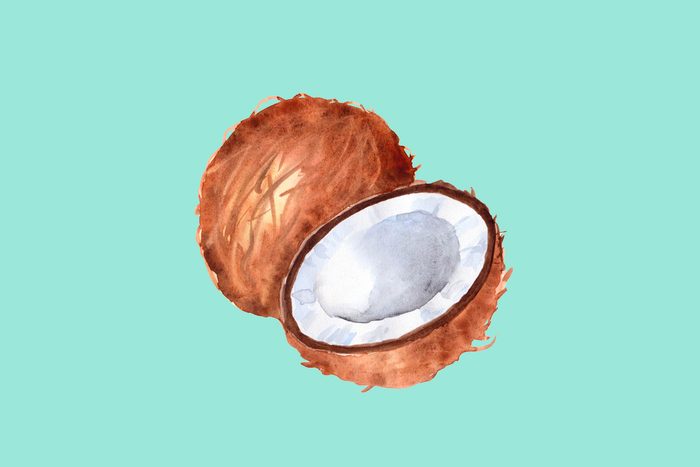
Coconut oil may improve wrinkles
A review of studies published in 2018 in International Journal of Molecular Sciences looked at the skin-repairing benefits of plant oils and found that coconut oil—when applied to the skin—acts as an anti-inflammatory and helps protect the skin from UV rays.
“Coconut oil is known to rebuild our skin tissue and it can regularly be used both topically and internally for the elimination of wrinkles,” Ostrower says. “Coconut oil is both hydrating and rebuilds our connective tissues, and damaged connective tissues are often the cause of wrinkles. The best kind to get is organic extra virgin coconut oil.” Veggie stir-frys are delicious with coconut oil. (Before you stock up though, make sure you know the facts about coconut oil’s nutrition.)
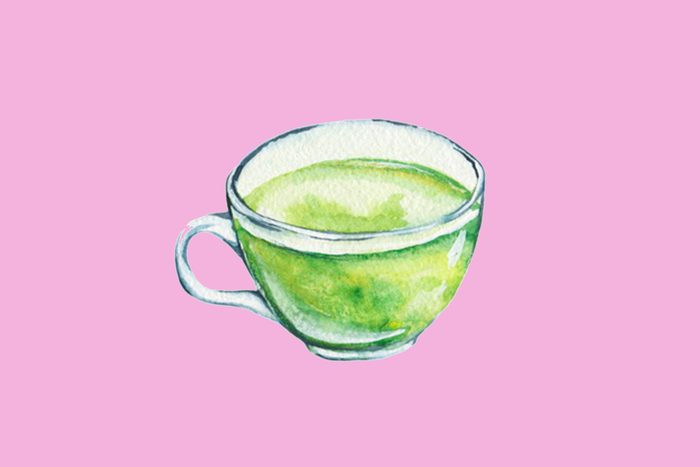
Eliminate dark circles by drinking green tea
“Oftentimes, allergens are the cause of dark circles or puffiness,” says Lauren Slayton, RD, and owner of Foodtrainers in New York City. “Fortunately, there are edible antihistamines. Seek out foods high in quercetin such as blackberries, blueberries, and green tea.” Who knew you could eat your way out of allergies!
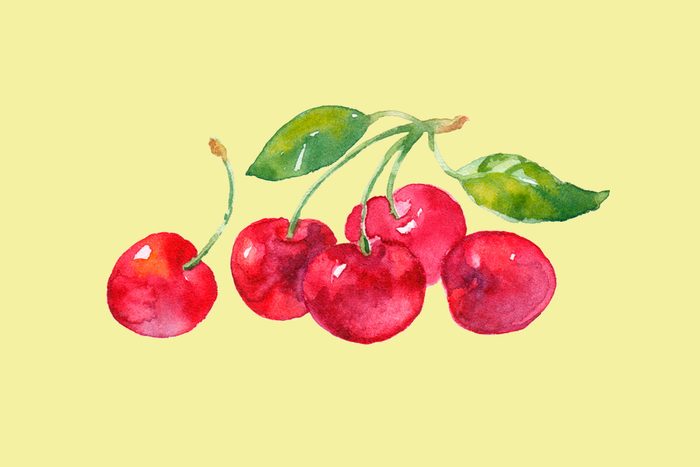
Get rid of skin flakiness by eating cherries
A review of studies looking at the health benefits of cherries, published in 2018 in Nutrients, suggests that eating sweet or tart cherries can prevent and decrease oxidative stress, which plays a major role in the aging process. and inflammation.”Summer is all about a nice bowl of cherries,” Zeitlin says. “And what’s great about this stone fruit is that it is high in vitamin C and potassium, two important nutrients for your skin health. Vitamin C gets that collagen pumping, while potassium helps to keep your skin well hydrated, giving you that dewy summer skin glow and preventing dry, flaky skin.”

Improve your skin tissue with silica
Can silica—a trace mineral that strengthens the body’s connective tissues—improve skin? That’s the question researchers set out to answer in a study published in 2016 in Anais Brasileiros de Dermatologia, the journal of the Brazilian Society of Dermatology. They enlisted 50 people whose faces showed clear signs of skin damage from too much time in the sun and asked them to take supplements that contain a form of silica (known as ortho-silicic acid) every day for 20 weeks. At the end of that period, all 50 participants—who ranged in age from 40 to 65—showed a significant improvement in skin.
“Silica strengthens muscles, tendons, hair, ligaments, nails, cartilage, and bone—and is crucial for healthy skin elasticity,” explains Ostrower. “Food sources of silica include leeks, green beans, garbanzo beans, strawberries, cucumber, mango, celery, asparagus, and rhubarb. In its natural form, silica is found in the horsetail herb.” (Next, check out these 8 essential foods for beautiful skin.)
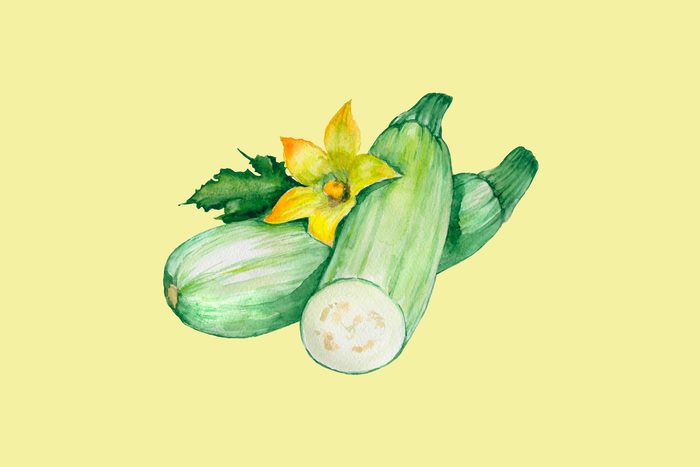
Zucchini may help collagen production
“This squash is high in manganese, a mineral that helps to fight off sun damage on your skin, aids in the production of collagen, which increases skin elasticity, and helps fight off rashes from the heat and sun,” Zeitlin says. Now that’s what we call a skin superfood jackpot. Besides zucchini, manganese-rich foods include mussels, nuts, whole grains, oysters, brown rice, leafy vegetables, and many spices, such as black pepper.

Ginger may improve acne
Treatment for acne—washes, gels, lotions, and creams such as antibiotics and retinoids—often come with a wide array of undesirable side effects, including dryness and peeling. A review of studies published in 2018 in Dermatologic Therapy, however, suggests that zinc is a kinder, gentler alternative to other acne treatments.
“Zinc is one of the most important minerals for skin health and acne sufferers,” says Ostrower. “Zinc controls the production of oil and the hormones that create acne. Often times, people with acne are zinc deficient. Foods rich in zinc include pumpkins seeds, ginger, pecans, eggs, and oysters.”

For a natural hit of retinal, eat your greens
Plenty of research, including a study published in 2019 in Advances in Dermatology and Allergology, suggests that retinals (which are vitamin A derivatives related to, but not the same as, retinol) can slow down the skin’s aging process. “Green beans are a great seasonal skin beauty booster because they have beta-carotene in them, which converts in the body to retinal,” says Zeitlin. “Retinal keeps skin smooth and works to protect past and present sun damage. You still need your sunscreen, but definitely work these green guys into your summer picnics.”
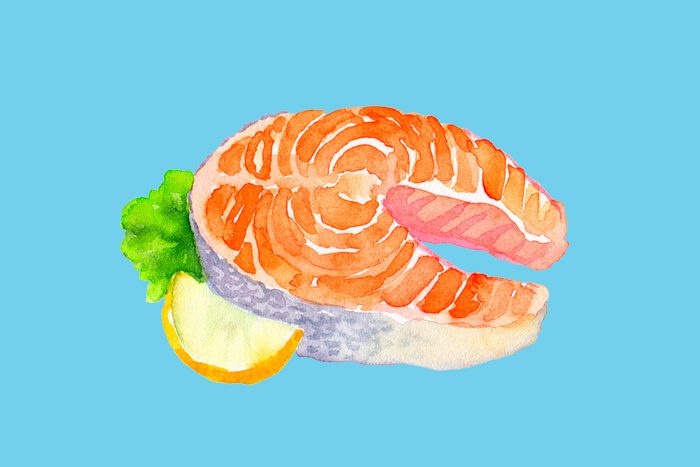
For irritated skin, up your intake of wild salmon
“Omega-3s have powerful anti-inflammatory properties, and are known to quell redness and swelling associated with eczema, psoriasis, rosacea, and dermatitis—and it can heal those conditions for good,” says Ostrower. “Some of the first signs of omega-3 deficiency are dry and flaky skin, dull hair, and brittle nails. It’s important to get enough omega-3s on a daily basis for lustrous, youthful, glowing skin. It will even prevent wrinkles. Foods rich in omega-3 are wild salmon, sardines, halibut, pastured eggs, chia seeds, flaxseeds, hemp seeds, and walnuts.”

Bell peppers may help you achieve a gorgeous summer glow
“Bell peppers are one of the ultimate beauty foods—especially the red ones,” says Zeitlin. Not only are these sweet peppers a rich source of skin-protecting antioxidants, but “they are a particularly great source of carotenoids, which help to prevent wrinkles and increase blood flow to your skin. They can also work to prevent acne and breakouts, keeping your skin clear, glowing, young, and fresh looking all summer long.”
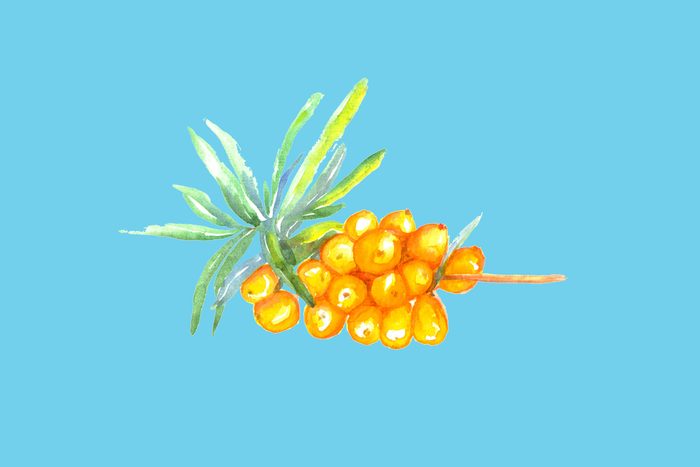
Dull skin may need the help of Sea Buckthorn oil
Sea-buckthorn oil—which is extracted from the fruit and seeds of the sea buckthorn plant—is loaded with skin-repairing and regenerating fatty acids, such as omega-6 and omega-7, according to a review of studies published in 2017 in Lipids in Health and Disease.
“My favorite skin improvement food is, without a doubt, Sibu Sea Buckthorn,” says Slayton. “If you want luminous skin, think of this pretty orange berry that tastes like a Sour Patch Kid. Sea-buckhorn’s Latin name means ‘making horses shine’ and this interesting omega-7 oil, rich in beta carotene and vitamin C, is helpful for many skin conditions.” Among them: discoloration, eczema, and acne.
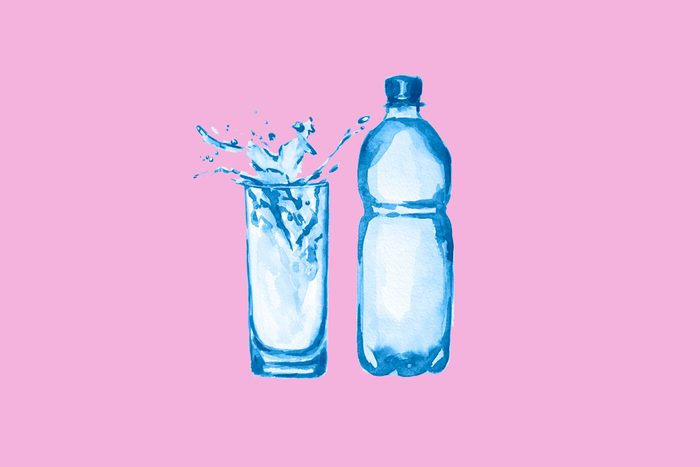
Mineral water is the ultimate summer staple
Staying hydrated is important for good health, in general, but what about skin specifically? A study published in 2015 in Clinical, Cosmetic, and Investigational Dermatology suggests that higher water intake on a regular basis results in healthier skin. “Drink plenty of pure water, mineral rich water,” Ostrower suggests. “Water provides the medium for all chemical reactions in our body. Additionally, it helps to cleanse and purify toxic debris and wash away rancid oils from the skin. During the summer I love making flavored water by adding sliced cucumber and strawberries to it. It’s more delicious and nutritious.” (Also, check out the most hydrating foods to eat.)
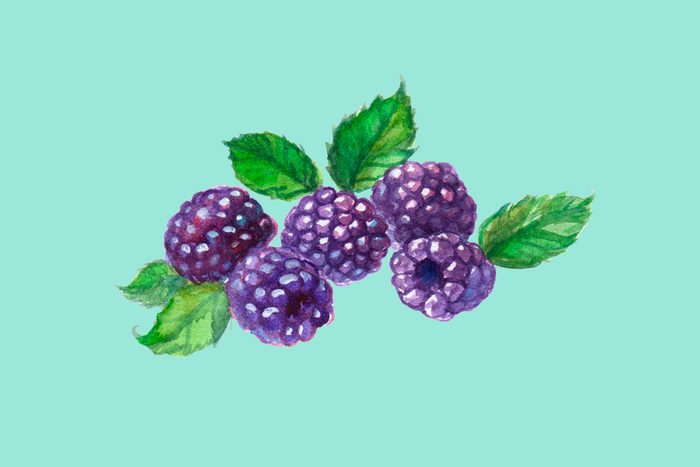
You can fight fine lines with the help of blackberries
“Blackberries are at their most delicious at this time of year, and they are a great beauty food thanks to an antioxidant called anthocyanin,” says Zeitlin, echoing the findings of a review of studies published in 2017 Food & Nutrition Research. “Anthocyanins help protect your skin from fine lines and dryness by deactivating the free radicals that damage your skin from the inside out.”
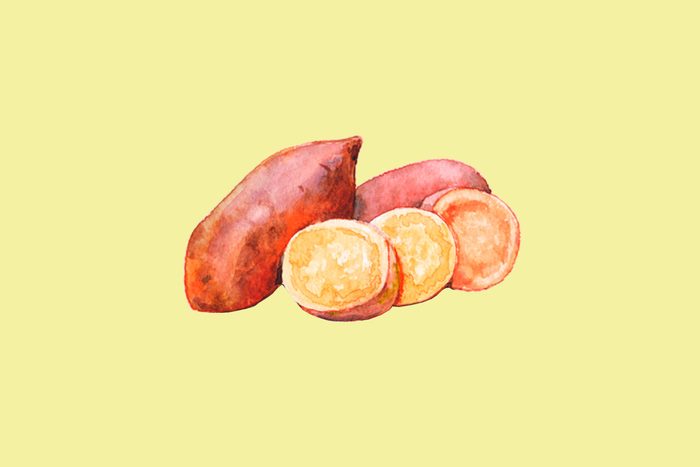
Sweet potatoes help hydrate your dry skin
If there’s one summer skin condition we all need some help improving, it’s dryness. “Dry skin can be a sign that more vitamin A is needed,” says Slayton. “Vitamin A is also known as retinol, and retinoids are used topically in many skin products. A baked sweet potato with pastured butter and leafy greens like spinach or kale provides a vitamin A trifecta.” (Make sure you know the 10 ways dermatologists switch up their skin-care routine in the summer.)